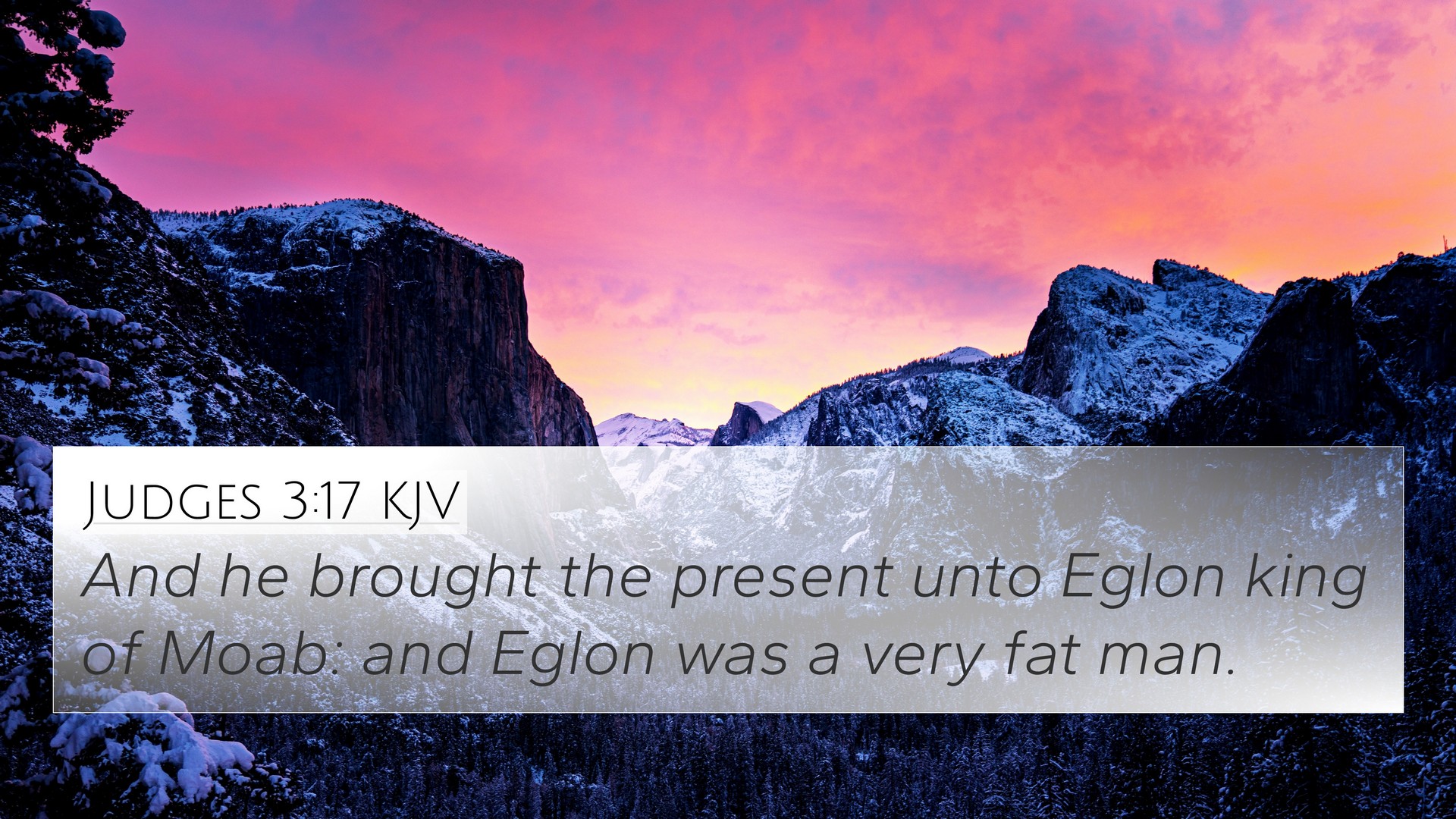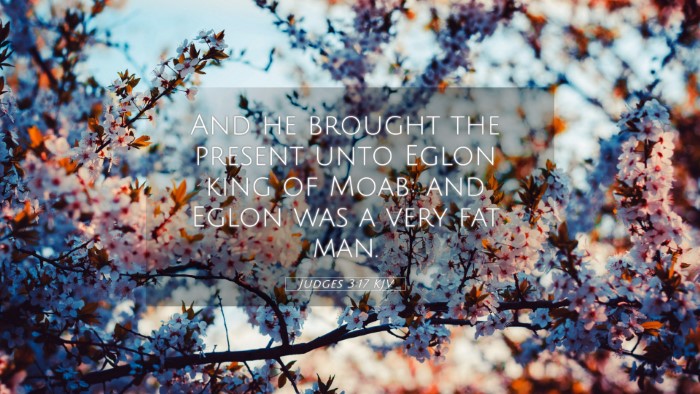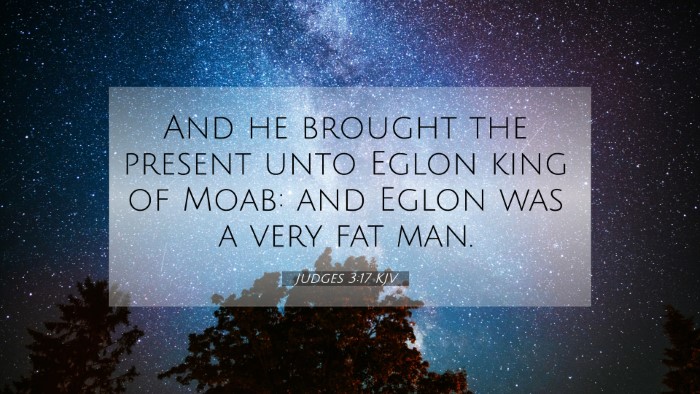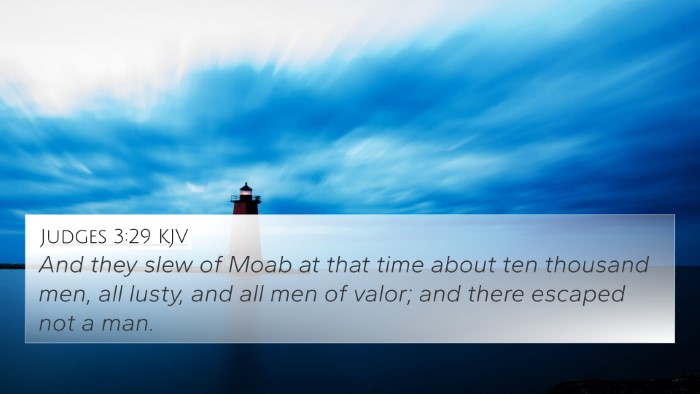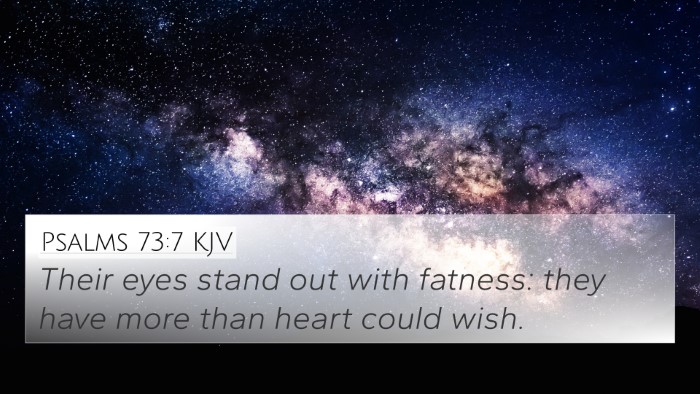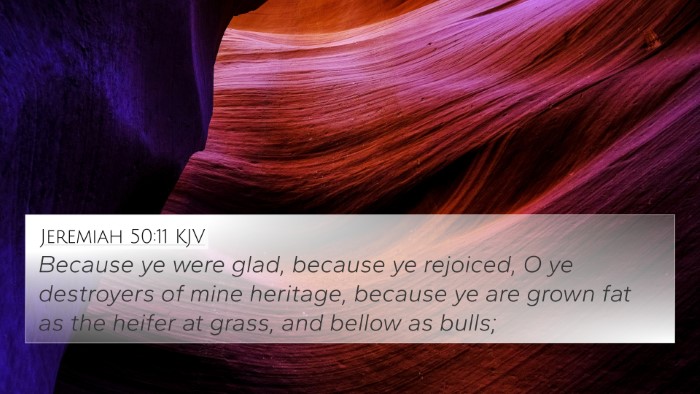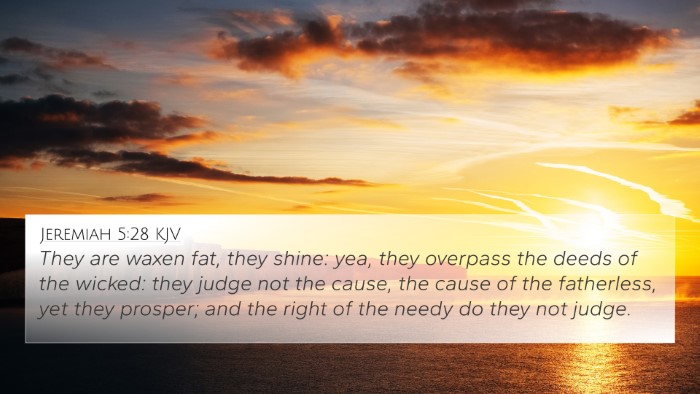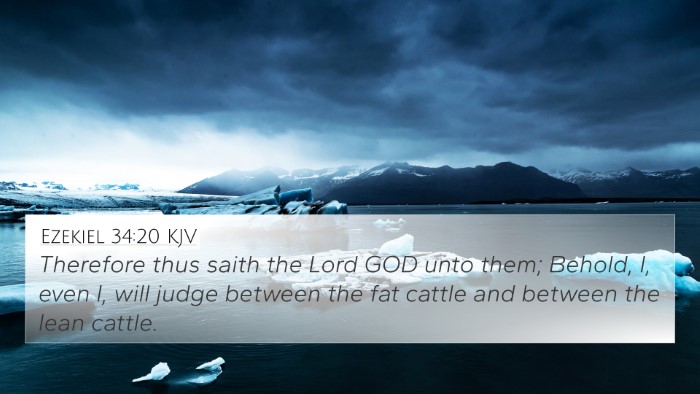Understanding Judges 3:17: A Comprehensive Analysis
Verse: Judges 3:17 - "And he brought the present unto Eglon king of Moab: and Eglon was a very fat man."
This verse is pivotal in the narrative of Ehud, the judge raised by God to deliver Israel from Moabite oppression. By examining the context, we can uncover rich insights into the themes of betrayal, deliverance, and the plans of God that unfold throughout the Book of Judges.
Contextual Significance
Judges 3:17 occurs within a broader narrative wherein Israel, having turned away from God, is subjected to servitude under the Moabites. Eglon, their king, embodies the height of corruption and indulgence, reflecting how sin leads to bondage. This verse encapsulates a moment of irony where the seemingly unassuming Ehud must approach the oppressor.
Thematic Connections
- Oppression and Deliverance: Judges overall narrates the cycle of sin leading to oppression, followed by cries to God for deliverance—a theme echoing through the entire Bible.
- Divine Providence: The placement of specifics in this story points to God’s hand at work, even in circumstances that seem dire or humorous, as with Eglon’s physicality highlighting both weakness and overindulgence.
Commentary Insights
Matthew Henry: Emphasizes Eglon’s gluttony and its representation of moral decay. Henry notes that God often uses unexpected means—like Ehud’s left-handedness—to fulfill His purposes.
Albert Barnes: Observes the implications of Ehud's act of bringing tribute, suggesting it showcases the tension between Israel’s humiliation and their hidden strength. The tribute symbolizes both subordination and a covert plot of liberation.
Adam Clarke: Highlights the irony in Eglon’s portrayal—despite being a king, his physical state denotes vulnerability. Clarke encourages recognizing the duality of power and weakness that runs throughout the scriptures.
Cross-References to Judges 3:17
Exploring connections between Judges 3:17 and other scriptures enhances our understanding:
- Judges 3:12-14: Sets the stage for the oppression by Moab and Israel's servitude.
- Judges 4:1-2: Demonstrates the recurring cycle of Israel’s sin and the oppression by enemies.
- Psalm 7:15-16: Speaks to the downfall of those who plot evil, paralleling Eglon’s fate.
- 2 Samuel 10:1-6: Offers insight into gift-giving before battles, akin to Ehud’s approach to Eglon.
- Matthew 20:16: "So the last will be first, and the first last," echoing the reversal of fortunes seen in Judges.
- Romans 11:33-36: Reflects on God's unfathomable wisdom in the way He orchestrates events, similar to the narratives in Judges.
- 1 Corinthians 1:27-29: God often chooses the foolish things to confound the wise, evident in Ehud’s unexpected role as deliverer.
Tools for Further Study
Utilizing the following tools can greatly aid in exploring the connections and deeper meanings of this verse:
- Bible Concordance: A useful resource for looking up keywords related to Judges 3:17.
- Bible Cross-Reference Guide: Offers comprehensive data for thematic studies.
- Cross-Reference Bible Study: Encourages digging into related themes across scripture.
Conclusion
The verse Judges 3:17 not only introduces a significant character but also sets the tone for a transformative event in Israel's history—demonstrating how God can utilize unlikely heroes in the face of seemingly insurmountable challenges. Through careful study and cross-referencing, we can appreciate the interconnectedness of scripture, revealing profound truths about God's character and His dealings with humanity.
